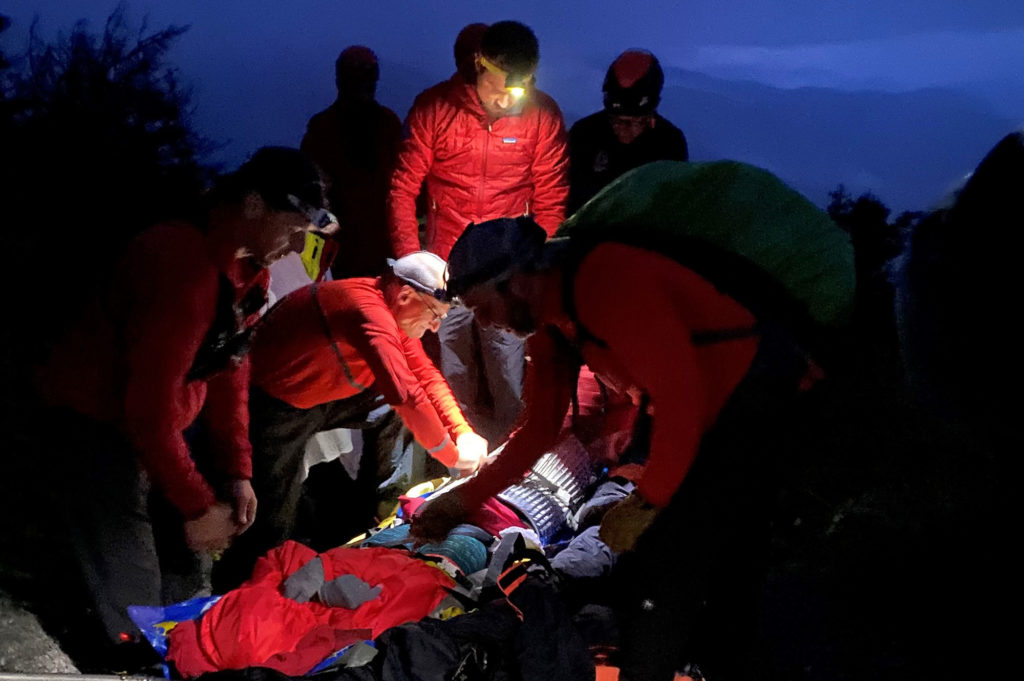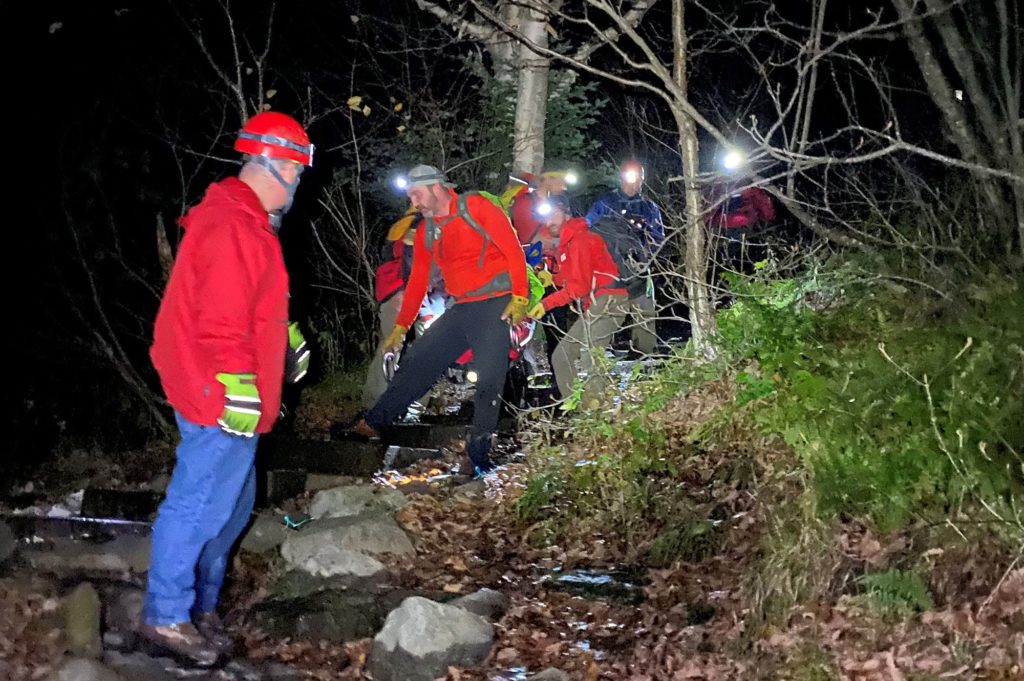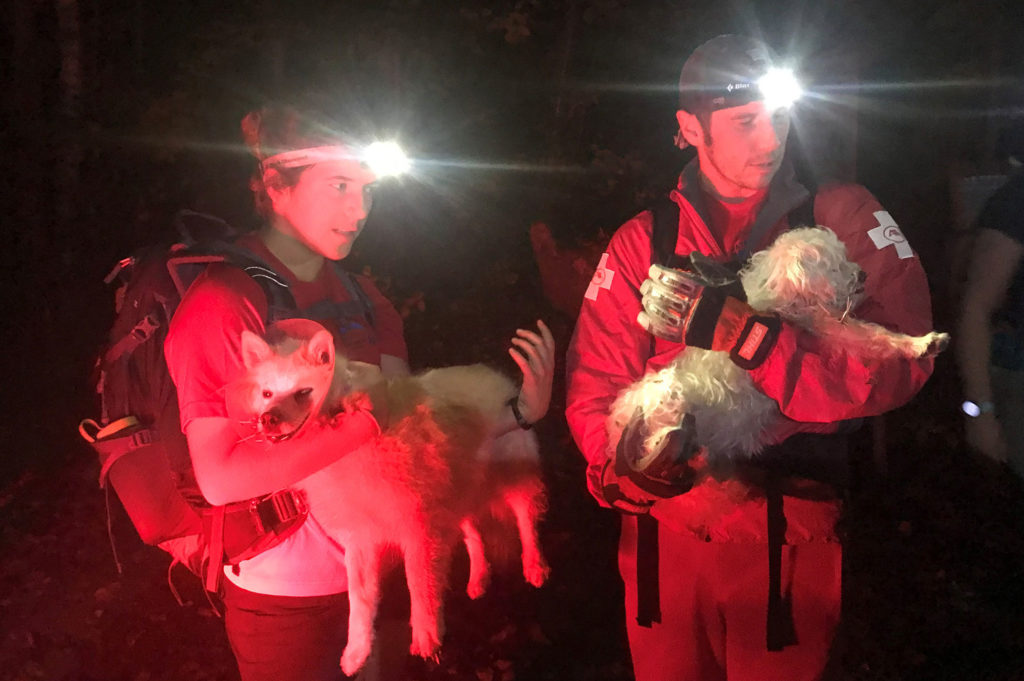
There can be no denying that 2021 was been an active year for search and rescue (SAR) in Vermont. While no database provides exact numbers, there have been an estimated 25 percent more incidents than usual. A backcountry rescue can require more time and resources, so it’s important to know how to get yourself out of the forest when possible to avoid straining rescue personnel and supplies. This is all the more true in winter. Search and Rescue Coordinator Neil Van Dyke talks us through safety tips for avoiding emergency calls.
This article appeared in the Winter 2021 edition of the Long Trail News under the headline “Search & Rescue Report.” See the full article (pages 14-15) for specific incident reports and insights.
Tip #1: Carry enough equipment, food, and water
Pack enough to be self sufficient for 12 to 24 hours. This includes extra layers of clothes, extra food and water, a headlamp, extra batteries (or an extra headlamp), and a map and the skill to use it. Make sure your phone is fully charged, and keep it on airplane mode to conserve its battery life unless you absolutely need it.
[Related: 5 Tips for Avoiding Backcountry Emergencies]
Tip #2: Tell someone where you are going
Communicate where you are going and when you expect to be back with someone you trust. Keep your contact updated if your plans change, and let them know when your hike is complete.

Tip #3: Research your trip
Research ahead of your trip and make sure it is within your ability level. Allow plenty of time to finish before it gets dark. Don’t be afraid to turn back if conditions are not what you expect.
GMC’s Day Hiker’s Guide to Vermont and Long Trail Guide are excellent resources. Browse online for guidebooks and maps.
Tip #4: Plan your hikes well before dark
The sun sets early in winter, so a headlamp and extra clothes are a must on any hike. If you need a rescue, or even if your descent just takes longer than planned, you do not want to be stuck without light or warmth.
Tip #5: Invest in a satellite communication device…
It is very common for SAR to receive calls from loved ones who have not heard from a hiker who promised to call and check in. While SAR understands that this can be worrisome, a missed phone call alone is usually not enough to elicit an emergency response unless there are other risk factors. Remember that cell service is often poor in the backcountry.
If checking in is truly important, hikers should consider buying a satellite communication device, which is generally more reliable than cell phone coverage.
Tip #6: And know how to use your satellite device
Users of satellite communication devices should be very familiar with their function to avoid inadvertent activation. Some models allow messages about the nature of an emergency. That can be very useful when used properly, and also can provide peace of mind for users and their loved ones.
Tip #7: Consider your pet’s needs too

Hiking with dogs is enjoyable, but they are not immune to risk or injury. Not all SAR teams have the resources or knowledge for animal rescues.
- Keep your dogs close and under voice command if very well-trained, or leashed if not.
- Use extra caution after sunset, when porcupines and other wildlife are more
active. - If your pets do have a run-in with a porcupine, seek veterinary care as soon as possible. Trying to remove quills yourself can cause further injury.
- If you have to call for help, listen carefully to questions and provide as much information as you can. Be aware of your surroundings so SAR will know where to find you.
[Related: Hiking the Long Trail with Your Dog]
Tip #8: If lost, stay calm and stay put
Take a break, consider your options, and make a plan, including calling SAR if service allows. Sometimes telephone coaching is enough to get hikers out of a tricky situation, and self-extricating by following directions saves valuable time and resources. Be prepared with emergency supplies like a headlamp and extra food, water, and clothing.
Neil Van Dyke is the Search and Rescue Coordinator for the Vermont Department of Public Safety, and he has participated in and coordinated countless backcountry searches and hiker rescues. An avid hiker and longtime GMC member, he provides search and rescue training each spring to the club’s field staff.
This article appeared in the Winter 2021 edition of the Long Trail News under the headline “Search & Rescue Report.” See the full article (pages 14-15) for more insight on avoiding a rescue.



















Leave a Reply